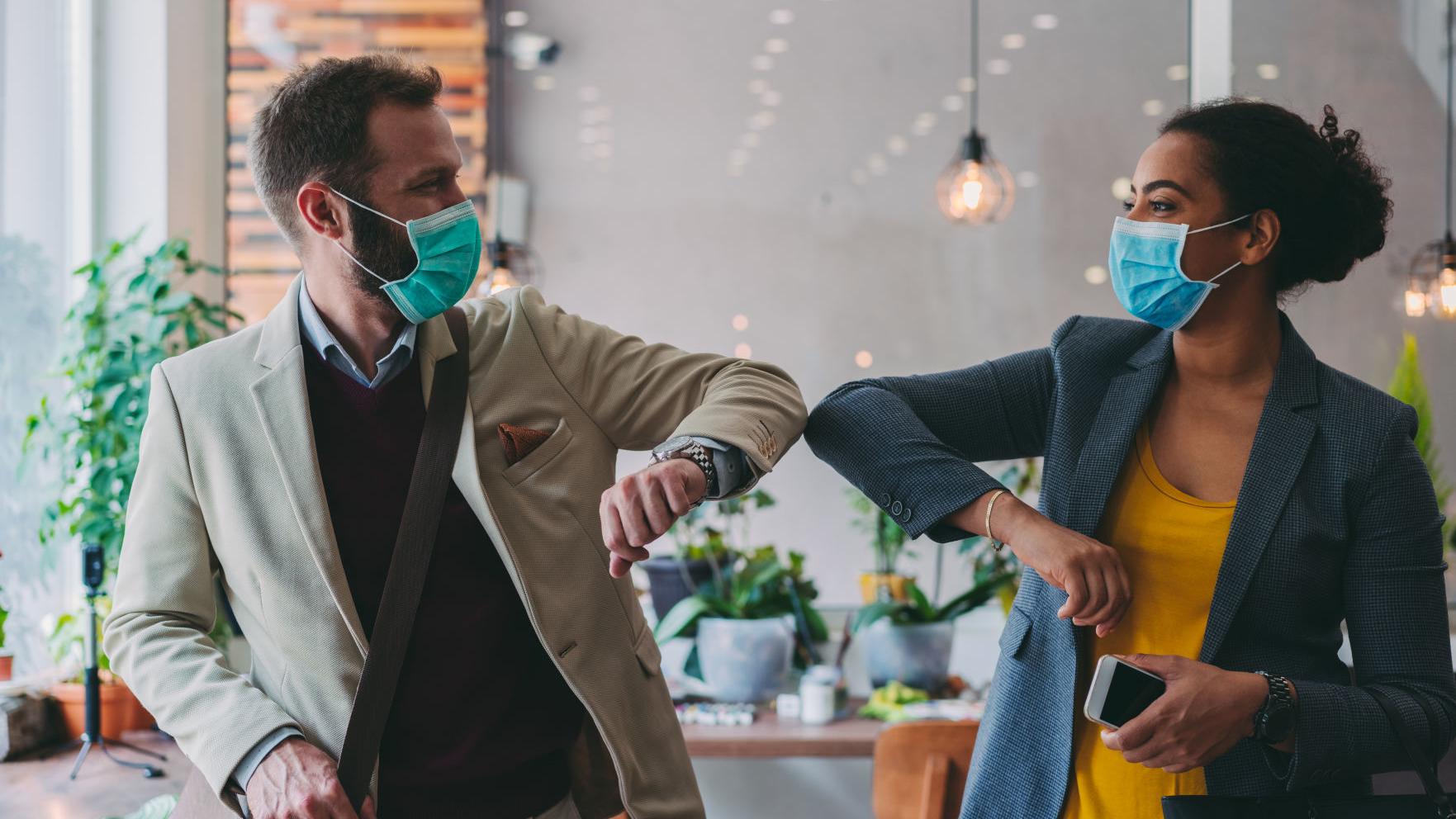Businesses are opening again, but the challenge is now to convince more people to return to them instead of working from home.
Linda Trim, director at Giant Leap, one of South Africa’s largest workplace design consultancies, says that while some companies have mandated workers return to the office at least a few days a week, others have reopened on a voluntary basis.
“What we have noticed is that many companies have reopened their offices and returned to work voluntarily, but have been disappointed by the experience,” she said.
“The spontaneous collaboration offices once provided often didn’t occur. And some workers who tried returning to offices quickly gave up and settled back into a routine of working at home.”
Trim added that people tend to spend much of their days hunched over laptops wearing headphones on video calls. Other workers arrived only to discover most of their colleagues were still at home, or on alternating hybrid schedules.
“It simply means that offices need to be much better – and more effective – to consistently draw people to the workplace. The office needs to establish more of a destination with clear purpose and enjoyable benefits rather than a grudging place to visit.
“Ideally businesses want to create a pull, not a push. And to create that pull, and to have people want to come in, the office space has to be redesigned with that in mind.”
Changes Incoming
Companies are responding some are rolling out new software to allow employees to better coordinate their visits with colleagues, while others are renovating spaces, upgrading in-office catering options, or appointing staff to watch the office experience.
“A number of companies are also experimenting with scheduling, with some setting engagement days when all employees will be required to attend,” Trim said. Others still are bringing in baristas, motivational speakers, comedians, or others to inject fun into the office.
Physical spaces are also changing, often to better support groups of employees. “Most offices will ultimately have about 60% of space devoted to collaboration, up from 40% prior to the pandemic,” Trim said.
Other companies are hoping brand new buildings will draw people back.
Consulting giant Accenture recently opened a new office in New York which is open to employees on a voluntary basis. Amenities include access to an outdoor terrace, sweeping views of the New York skyline, along with an interfaith prayer room, tech-free reflection zones, yoga and wellness areas, and dozens of conference rooms.
For those who opt-in, a new system accessible via an internal app that is in development can help Accenture employees find their colleagues who may be on other floors.
To entice people, Accenture has also offered staff free lunch coupons on Mondays and Fridays, when the office tends to be less busy. The company has also organised volunteer events, happy hours, and other group activities in the office.
“The simple overarching principle is to make people glad they are in the office. As the working world normalises it really, really matters to have people together,” Trim said.
Hidden Cost
While the data on the productivity impact of working from home is mixed, many companies are saying that as time goes by, the costs of not having staff on-premises increases – particularly when it comes to training and mentoring, said Busi Mavuso, chief executive of Business Leadership South Africa (BLSA).
“Businesses should be free to choose whether to require employees on-site or not – if employees really are more productive working from home, we can expect companies to allow employees to do so.
“We know that any increase in health risks from allowing staff to work in the office will be minimal, based on the same evidence that has allowed for restrictions to be relaxed on hospitality and gatherings. Employers can reduce it further by introducing regular testing on site. Vaccination is obviously important.”
Mavuso said many employers are requiring staff to be vaccinated as part of the return to the workplace and clear guidance from the government on doing so would help for this obvious risk-reducing step to become more prevalent.
“Social distancing requirements can be maintained if the evidence points to it being necessary as well as mask-wearing in communal spaces, but it seems unnecessary to wear a mask while seated, given it is not a requirement in many other contexts.”
Mandatory Vaccines
The issue of mandatory vaccinations is expected to give clarity to businesses. Clarifying working from home and de-risk a return to the office.
Trade union Solidarity has launched a legal challenge against the University of the Free State (UFS) over its planned mandatory Covid-19 vaccine policy for staff and students.
The union said it also plans to file several other court cases on mandatory vaccinations in the workplace. According to Solidarity, its first case against the Small Enterprise Employers of South Africa (SEESA) will be heard in the Labour Court in Johannesburg on 27 January.
These legal challenges are expected to act as some of the first ‘test cases’ and provide clarity around vaccine mandates in the public and business sectors.
“At the moment, the South African labour market is faced with huge uncertainty regarding whether employers may compel their employees, or even universities their students, to get vaccinated.
“As a result, we see dozens of employers exploiting this uncertainty and using it as an excuse to lay off employees without following the correct procedures,” said Solidarity chief executive Dr Dirk Hermann.






